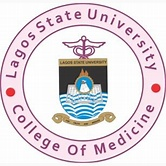Omicron: The Facts About the New COVID Variant
December 01, 2021
Omicron, the new COVID variant has sparked worries among medical fraternities across the globe as the variant’s mutations can make it more transmissible. The variant was first reported in South Africa, and it has been declared a “variant of concern” by the World Health Organisation’s (WHO) Technical Advisory Group on Virus Evolution (TAG-VE). The evidence disclosed by the TAG-VE states that Omicron has several mutations that could have an impact on how easily it spreads or the severity of the illness it causes.
Read this article to understand the facts about new variant of concern.
How Does A Virus Mutate?
The SARS-Cov-2 virus is a single-stranded RNA virus. Mutations are basically any changes that happen in the genetic sequence of the RNA, which are considered a natural part of the virus evolution. When a virus enters a susceptible body, it begins to replicate, and the rate of replication increases with the spread of the infection.
A virus that has a mutation in it is called a variant. The coronavirus will continue to mutate for a prolonged duration until the Pandemic settles, thus it is crucial to strictly adhere to the COVID-19 safety behaviour.
Also Read: COVID-19: Know How Different SARS-CoV-2 Variants Are Named By The WHO
What Impact Do Mutations Have?
A mutation starts to affect people when it results in any alterations in transmission or in treatment. Generally, mutations can have positive, negative, or neutral impacts on the human being. A positive impact denotes that virus has become non-viable, whereas negative impacts mean increased transmissibility, the severity of infection, a grouping of infections, ability to hedge immunity and infect people who have acquired immunity, neutralisation escape from monoclonal antibodies and increased binding to lung cells.
What Are The Features Of Variants Of Concern?
The variants of concern have one or more of these characteristics:
Increased rate of transmissibility
Change in virulence/disease presentation.
Capability to easily elude diagnostics, drugs, and vaccines
Also Read: Omicron: All You Need to Know About the New COVID-19 Variant
What Is the Rate of Transmissibility of Omicron?
According to WHO reports it is not yet clear whether Omicron can easily spread from person to person when compared to other variants, including Delta. Though, the number of people tested positive has been slowly rising in parts of South Africa affected by this new variant, but studies are ongoing to understand if it is due to Omicron or other factors.
Will Omicron Cause Severe Infection?
There is currently no information to suggest that Omicron can cause more serious disease compared to other variants including, Delta. Primary data reveal that there is an increasing rate of people being hospitalised in South Africa, but this may be due to rising numbers of people becoming infected, rather than a cause of infection with Omicron. Understanding the level of severity of the Omicron variant may take days to several weeks. Remember all variants of COVID-19 that is dominant worldwide can cause lethal disease or mortality, for most vulnerable groups in specific and hence prevention is the key .
Is There Any Chance Of Reinfection?
Initial studies suggest that there may be a higher rate of reinfection with Omicron in people who had previously been affected with COVID-19 when compared to other variants of concern, however, information is limited. More data will be available in the coming days.
How Effective Are Vaccines Against Omicron?
The WHO is working with scientific communities to understand the possible impact of this new variant on vaccines. However, vaccines remain crucial to contain the spread of disease and death, including the dominant Delta. Current vaccines stay effective against serious disease and death.
Can PCR Test Detect Omicron?
The PCR tests has been used extensively to identify infection including infection with Omicron, as seen with other variants as well. However, studies are in progress to assess whether there is any impact on other types of tests, including rapid antigen detection tests.
What Should People Do to Avoid Infection?
The most effective steps one can take to contain the spread of the coronavirus is to follow COVID-19 appropriate behaviours including maintaining physical distance at least 1 meter from others, wearing a mask, opening windows to enhance ventilation, avoiding crowded places, washing hands with soap and water or use alcohol-based hand sanitisers, cough or sneeze into a tissue or bent elbow and get vaccinated.














